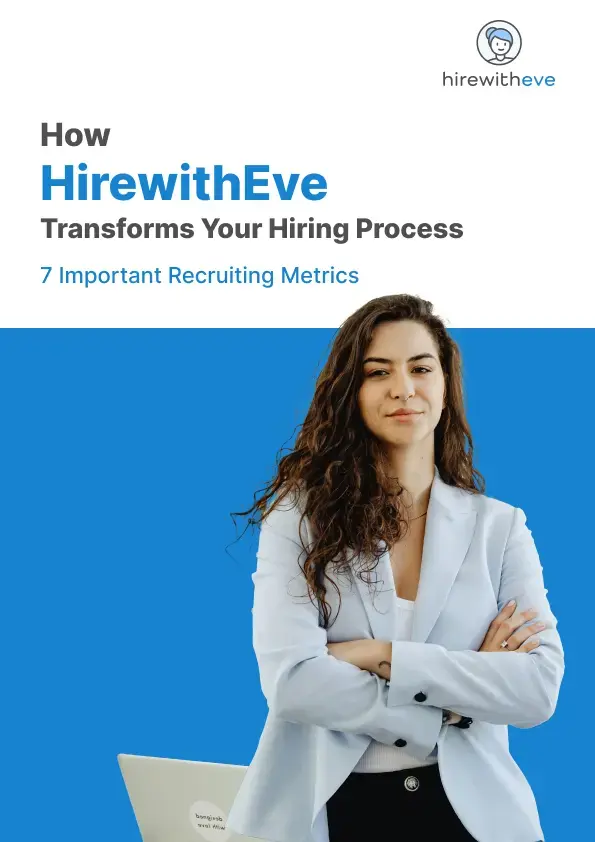What is Indirect Compensation? Understanding Its Role in Talent Acquisition
What is Indirect Compensation? Understanding Its Role in Talent Acquisition

In today’s competitive job market, talent acquisition specialists and HR managers are constantly looking for innovative ways to attract and retain top talent. Compensation plays a vital role in this process, but it is not just about salary or bonuses. Indirect Compensation is a crucial component of an overall compensation package that can help employers differentiate themselves. But what exactly is indirect compensation, and why is it so important? This blog will explore the concept of Indirect Compensation, its various types, and its impact on both talent acquisition and retention.
Table of contents
What is Indirect Compensation?
Indirect Compensation refers to non-monetary benefits that employees receive as part of their employment package. While direct compensation includes salary and bonuses, indirect compensation encompasses additional perks, services, and benefits that can significantly influence an employee’s overall satisfaction.
These benefits often include healthcare, retirement plans, paid leave, employee wellness programs, and various other non-cash incentives that contribute to an employee's well-being. Unlike a salary, which directly adds to an employee’s paycheck, Indirect Compensation enhances their quality of life and can influence long-term commitment to the organization.
Types of Indirect Compensation
There are several types of Indirect Compensation that companies can offer, depending on their industry, budget, and employee needs. Some common types include:
Health and Wellness Benefits
Offering health insurance, dental, vision, and even mental wellness programs falls under Indirect Compensation. These benefits provide security to employees, reducing stress about healthcare expenses.
Retirement Plans
Pension plans and 401(k) matching programs are forms of Indirect Compensation that encourage employees to stay with the company long-term by helping them save for their future.
Paid Time Off (PTO)
Paid holidays, sick days, and vacation time are key aspects of Indirect Compensation. Allowing employees to take time off without worrying about a reduction in income leads to greater job satisfaction and work-life balance.
Employee Assistance Programs (EAPs)
EAPs offer support for personal issues like counseling or financial planning, adding immense value to the overall employee experience through Indirect Compensation.
Education and Professional Development
Many companies offer tuition reimbursement or professional development opportunities, which are considered a form of Indirect Compensation because they invest in the employee’s long-term career growth.
Flexible Work Arrangements
Remote work options and flexible scheduling are increasingly becoming part of an organization's Indirect Compensation strategy, helping employees achieve a better work-life balance.
Importance of Indirect Compensation in Employee Retention
When employees consider long-term commitment to an organization, they don’t just look at their paycheck—they consider the overall compensation package, including Indirect Compensation. A well-rounded package that includes health benefits, retirement savings, and flexibility can often be more appealing than a higher salary alone.
Research has shown that employees are more likely to stay with companies that offer robust Indirect Compensation packages. Benefits like health insurance and retirement plans offer a sense of security, while paid time off and flexible working conditions improve work-life balance.
Talent acquisition specialists and HR managers should emphasize Indirect Compensation during the hiring process, as it can be a key selling point for candidates deciding between multiple offers.
Indirect Compensation vs. Direct Compensation: What’s the Difference?
It’s important to understand the distinction between Indirect Compensation and direct compensation. Direct compensation includes salaries, wages, commissions, and bonuses—essentially, anything that appears as a dollar amount on an employee’s paycheck. Indirect Compensation, on the other hand, refers to non-cash benefits and perks that contribute to the overall value of working for a company.
While direct compensation is often seen as the most significant factor in attracting candidates, Indirect Compensation can be equally influential in retention and long-term job satisfaction. Employees are increasingly valuing the balance between monetary rewards and lifestyle-enhancing benefits.
How Indirect Compensation Affects Talent Acquisition
For talent acquisition specialists, understanding the role of Indirect Compensation is crucial for attracting the best candidates. In a job market where top talent often fields multiple offers, it’s not just about offering the highest salary—it’s about offering a comprehensive benefits package that supports long-term well-being.
When promoting open positions, HR managers should highlight the Indirect Compensation benefits alongside the direct compensation. Many candidates prioritize health benefits, work-life balance, and retirement savings plans over a slightly higher base salary. A strong Indirect Compensation package can make all the difference in swaying a candidate’s decision.
In a 2023 survey conducted by the Society for Human Resource Management (SHRM), 60% of job seekers reported that Indirect Compensation, such as health benefits and flexible work options, was one of the primary factors in their decision-making process when accepting a job offer.
As organizations become more employee-centric, focusing on Indirect Compensation can help create a more engaged, loyal, and productive workforce.
Conclusion: How HirewithEve Can Streamline Your Compensation Strategies
While Indirect Compensation plays a vital role in talent acquisition and employee retention, managing and communicating these benefits can be a challenge. Platforms like HirewithEve offer tailored solutions that help HR managers and talent acquisition specialists streamline their compensation strategies.
With tools for comprehensive benefits tracking, analytics to understand employee needs, and resources for promoting Indirect Compensation during the hiring process, HirewithEve ensures that your organization’s compensation package stands out in a crowded market.
The platform also helps companies leverage Indirect Compensation as a key selling point during the recruitment phase, enhancing candidate attraction and improving retention rates. Whether you’re offering flexible work options, healthcare plans, or professional development opportunities, HirewithEve simplifies the process and ensures that your benefits package is communicated effectively to potential hires.
Target Your Talent
Unlock tailored solutions for your recruitment and hiring needs with Eve Platform's extensive case study library.
Subscribe now to enhance your HR expertise and excel in your role.
Free Resources

Transforming Hiring: 7 Key Recruiting Metrics
Enhancing recruitment processes with data-driven insights for better hiring outcomes.

Reducing Hiring Bias with Hirewitheve.
Utilizing Hirewitheve to combat bias and streamline recruitment processes effectively.

Hiring Detail-Oriented Candidates
HirewithEve enhances hiring by accurately assessing candidate's attention to detail-oriented.
